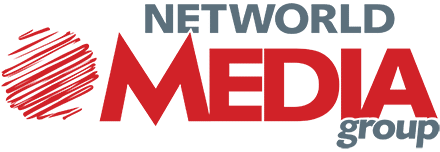Dr. Anora Morton, CEO and founder of The Nori Project, a pioneering “Food Equi-Tech” company, will be a keynote speaker at the upcoming Self-Service Innovation Summit, which brings together industry leaders, innovators and B2C brands to explore the future of self-service technology.
Dr. Anora Morton is redefining the landscape of self-service innovation as CEO and founder of the Nori Project, a “Food Equi-Tech Company.” Her approach blends social impact with business success.
Nori tackles social issues like food insecurity by offering healthy and affordable meals through high-tech vending machines. Its approach combines social impact with business success, creating a sustainable model that benefits both the community and the company’s bottom line.
It’s the topic of Morton’s keynote at the upcoming Self-Service Innovation Summit taking place in Tampa, Florida, Dec. 9-11. Registration continues through Dec. 6.
The summit, which is being hosted by Networld Media Group, brings together B2C brands to learn from industry leaders, network among peers and hear from top innovators when it comes to self-service technology. Networld Media Group is a leading business-to-business media communications company specializing in digital media, associations and events in the mobile, self-service, digital signage, retail, food service and financial services industries.
Morton will present the talk, “Serving others Through Self-Service Innovation.”
In an email interview with Vendingtimes.com, Morton emphasized how vending technology can be used to create a meaningful social impact.
Q: Can you elaborate on how companies can align self-service innovation with social impact goals, while still achieving significant business results? How are you approaching this with The Nori Project?
Morton: I went to law school because I wanted to help people. But early in my legal career, I realized I couldn’t make the kind of impact I envisioned within the confines of being a lawyer. That realization shifted my focus: I still wanted to help people, but I also wanted to create something sustainable and profitable — something that could fund continued social impact. That’s why I started Nori.
Vending machine companies aren’t typically what comes to mind when you think of venture capital or startups. To succeed, you have to innovate not only in what you offer consumers but also in how you structure your business for financial sustainability.
At Nori, our financial health doesn’t rely on individual machine sales. Instead, we’ve built a subscription model called Nori Onsite. Through Nori Onsite, we provide organizations with a turnkey healthy vending solution. Organizations become hosts for these high-tech, healthy food hubs, which offer nutritious meals to employees and communities for a quarterly fee. Hosts also share in the revenue, making it a win-win. The best part? We handle all the operations, and any unsold food is donated.
This model allows us to sustain our mission of providing healthy food access to everyone, including those in food deserts or facing food insecurity. Too often, efforts to help others are seen as unprofitable or unsustainable. I’ve seen this firsthand—especially during my time as a public defender.
But let’s be honest: we all need to make a living to sustain ourselves, and businesses need to generate profit to sustain their impact. Nori is my way of bridging that gap, creating a model where helping others and profitability coexist.
Q: What do you envision as the future of self-service technology, and how will it continue to evolve to address emerging societal needs?
Morton: The future of self-service technology in America could take inspiration from Japan, where vending machines are a part of everyday life, found on nearly every street corner and offering an impressive variety of options.
I envision an evolution of self-service here that maintains that level of accessibility but with an American spin — designed to meet specific societal needs.
The COVID-19 pandemic accelerated the adoption of autonomous solutions, and the self-service industry has a unique opportunity to build on that momentum by focusing on what people truly want and need. This means creating technology that is not only convenient but also intentional, addressing real gaps in access.
At Nori, we’re working toward making healthy food accessible everywhere people are — in office spaces, study areas, bus stops, both food deserts and more affluent areas, and even outdoors. It’s about meeting people where they are and giving them options that align with their needs and values.
As self-service technology continues to evolve, I see it becoming more integrated into our daily lives, offering solutions beyond just convenience — solutions that genuinely improve quality of life.
From healthy food access to autonomous services in new spaces, self-service technology has the potential to address societal challenges in a way that is scalable, innovative, and impactful.
About Networld Media Group
Founded in 2000, Networld Media Group is a leading media communications company specializing in digital media, events and associations in the technology, restaurant, banking, and retail industries. It’s media brands include ATMmarketplace.com, DigitalSignageToday.com, FastCasual.com, KioskMarketplace.com, QSRweb.com, RetailCustomerExperience.com and RewardsThatMatter.com. Events under the Networld umbrella include the Fast Casual Executive Summit, the Restaurant Franchising & Innovation Summit and the Self-Service Innovation Summit.
###


